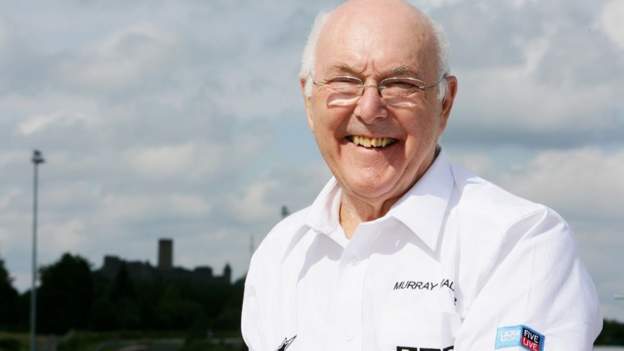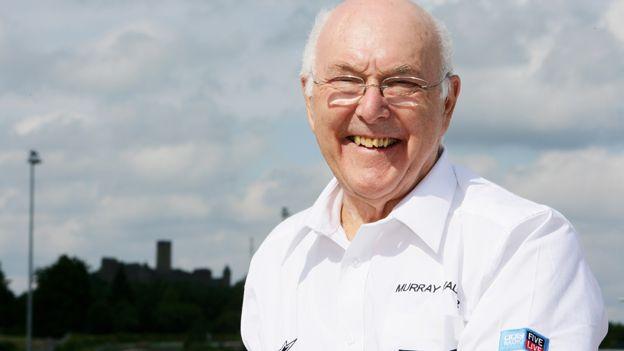
It’s just over a year since legendary commentator Murray Walker passed away, aged 97.
He first broadcast on the airwaves way back in 1949, at the British Grand Prix, and became a full-time F1 commentator in 1978, retiring in 2001.
Throughout those years, he became the voice of the sport.
“Murray garnered the respect normally reserved for drivers,” says Maurice Hamilton, who has written a biography about the man.
“Throughout the sixties, the only channel you could get motorsport coverage on was the BBC, so Murray was motorsport.”
Hamilton has been covering motorsport as a journalist since 1977 and has written multiple books about F1 teams and drivers, including Niki Lauda, Alain Prost, Ayrton Senna and James Hunt.
Hamilton also worked for 20 years on BBC Radio 5 Live as a Formula 1 summariser and remembers being lucky enough to work with Walker. He describes it to us as like, “going to work with your favourite uncle”.
Hamilton’s book is packed with some of Walker’s most famous and delightful on-air blunders, or ‘Murrayisms’.
Here are some takeaways…
The voice of F1
The book opens with one of Walker’s most famous pieces of commentary, from the final laps of the 1986 Australian Grand Prix.
“Rosberg out! Keke Rosberg! Out of the Australian Grand Prix! If this isn’t a sensation, I’d like to know what is.”
“And look at that! Colossally, that’s Mansell! That is Nigel Mansell. The car absolutely shatters. He’s fighting for control. You can see what’s happened. Now – this could change, and will change, the World Championship.”
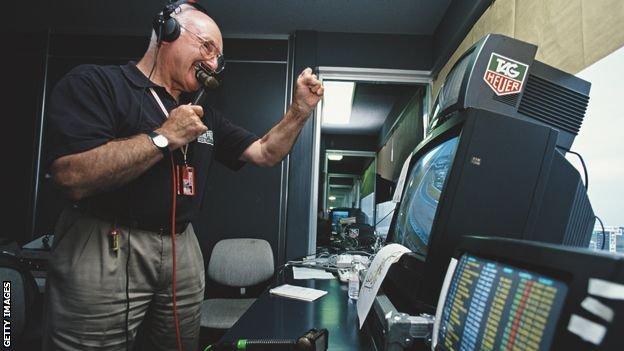
Hamilton calls this piece of commentary, “Murray in extremis.”
“The line, ‘colossally’ – who even says that?”
The book is peppered with commentary from plenty of other memorable races too: the 1976 Japanese grand prix, where James Hunt sealed the championship; Suzuka ’89, which determined that year’s World Championship in Alain Prost’s favour after he and his bitter rival Ayrton Senna both went off track; Imola ’94, in which Senna was killed in an accident; Adelaide ’94, where a controversial collision between Michael Schumacher and Damon Hill edged the title in favour of the former…
“I thought to myself, ‘what is the essence of Murray Walker?’,” Hamilton explains, adding, “It’s the commentary. I realised that we weren’t going to have his voice in the book, but that I could get as near as possible by putting commentary in.”
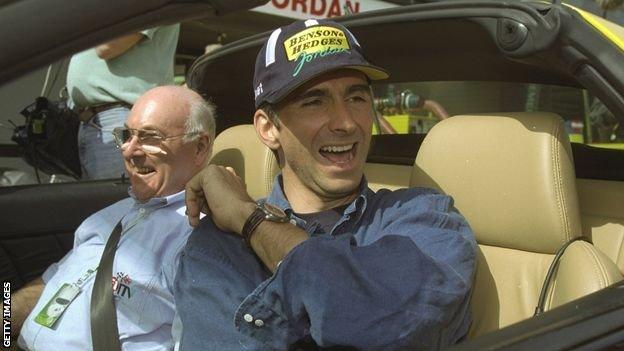
His universal appeal
One story within the book – an anecdote shared by former FIA president Max Mosley – illustrates the kind of wide appeal that Walker had.
Mosley describes being at the 1993 grand prix in South Africa, where there were lots of dignitaries from the government and the ANC (African National congress) present – one of whom was the now-current president of South Africa, Cyril Ramaphosa. Mosley asked Ramaphosa whether there was anyone he might like to meet, expecting him to suggest someone like Ayrton Senna.
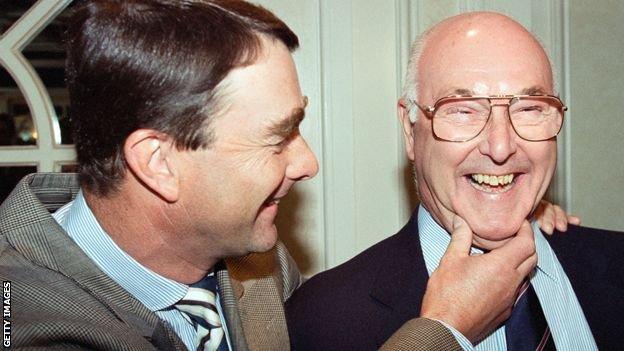
“He said Murray Walker! We went into the press room together and stood in front of Murray’s desk, where he was writing. I introduced Ramaphosa to him. Murray seemed as surprised as I was but, of course, he was absolutely charming and Mr Ramaphosa was delighted!”
A difficult relationship
One man whom Walker didn’t rub along with quite so well, at least initially, was James Hunt.
Hunt was a former Formula 1 Champion and went on to form a very successful commentary partnership with Walker on the BBC from 1980 until his tragic death in 1993, aged 45.
However, when Hunt was first introduced, Hamilton says that Walker was concerned the BBC were trying to, “ease him out”.
There are quotes within the book describing how Walker first received his commentary partner.
“My thoughts were: He may be a world champion racing driver, and a very good world champion racing driver, but what on Earth does he know about commentating? And, what’s more, I didn’t particularly like him as a person. I was old enough to be his father. My views on life were diametrically opposed to his. I was a pretty plonking straightforward up-and-down bloke and here I was with this booze-swilling, cigarette-smoking, womanizing, drug-taking chap who I associated with rudeness and being objectionable.”
Murray the ‘muddly talker’
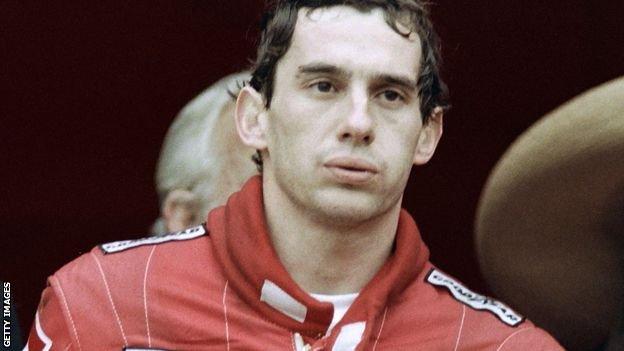
For someone so studious and knowledgeable, Walker had an incredible knack for making some very entertaining mistakes during his commentary.
“The Murrayisms are such an integral part of him,” Hamilton observes. “We waited for them and loved it when they happened.”
For Hamilton, this was just symptomatic of a mind too full of information. He remembers seeing Walker’s commentary box, “festooned with notes”.
“During the race, something would occur that would trigger a thought and he had to get that out to you. In his enthusiasm to do that, he would sometimes trip over his words and make mistakes.”
